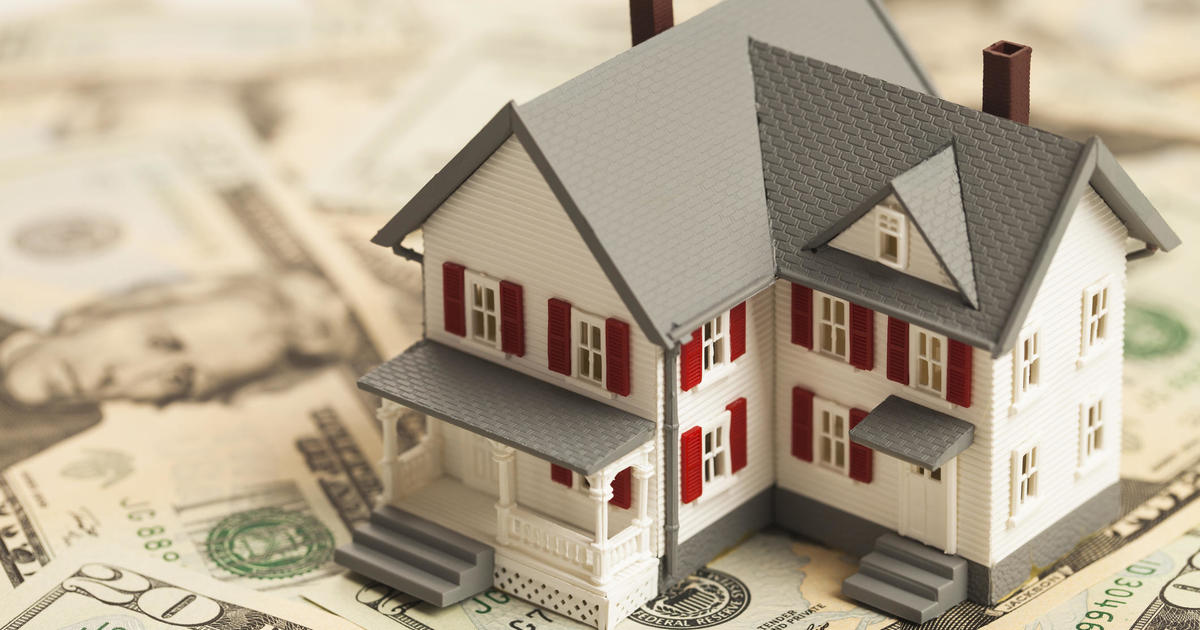Is this a good time to take out a home equity loan? Experts weigh in
Interest rates have been rising in the past year or so — on credit cards, mortgage loans, and other financial products like home equity loans and home equity lines of credit.
Still, that doesn't mean these products are necessarily bad ideas right now. In fact, for some homeowners, taking out a home equity loan in today's market might actually be a smart move.
But is it the right time for you to borrow from your house with a home equity loan?
Start exploring today's top home equity loan rates here.
Is this a good time to take out a home equity loan? Experts weigh in
Here's what experts have to say about whether this is the right time to take out a home equity loan.
Yes… because home equity has likely maxed out
The typical homeowner has about $200,000 in tappable home equity right now, according to analytics provider Black Knight.
"If you've owned your home for a few years and its value has increased since your purchase, you likely have built-up equity," says Hazel Secco, president of Align Financial Solutions in Hoboken, N.J. "This increased home value provides a solid foundation for securing a home equity loan."
Still, that big chunk of equity might not last for long. With high mortgage rates pushing down buyer demand, home values — and, by extension, home equity — could fall, too. This means you'd want to act soon to take advantage of your equity at its fullest.
"For someone looking to tap home equity, now is a good time to look into it, considering that home values might not get much better for the foreseeable future," says Michael Micheletti, chief marketing officer at home equity investor Unlock.
Learn more about the home equity loan rates available to you here.
No… if you plan to sell soon
Home equity loans aren't a good idea if you'll need to sell the house soon, because if your home falls in value between now and then, it could "lead to a situation known as being underwater," Secco says, "where the outstanding mortgage balance exceeds the home's current market value."
If you're underwater on your mortgage, selling your home won't net you enough to pay off your loans, and you'll end up owing your mortgage lenders for the remaining unpaid balances.
Yes… if you'd charge the costs to a credit card or personal loan
If whatever you need to pay for — home repairs, medical bills, or any other expense — is unavoidable and would otherwise go on a credit card, personal loan, or another type of high-interest debt, a home equity loan is probably a better choice. As Secco puts it, "Other loan interest rates aren't very appealing at the moment."
She's right: The average credit card rate is over 21% right now, compared to the 8 to 10% you'll find on a home equity loan. Personal loan rates have topped 12%.
"It's the more financially advantageous choice compared to taking out a personal loan or relying on credit card borrowing," Secco says.
No… if your credit's not great
As with most financial products, your credit score plays a big role in not just qualifying for a home equity loan — but what interest rate you get on one, too. And if your credit score is low, you're likely to get a high rate (and subsequently, a high monthly payment, too).
"If someone's credit doesn't qualify them for the best rate, payments can be too high for the homeowner's budget," Micheletti says. "We're seeing additional credit tightening now, too, which makes it more difficult for homeowners to qualify for loan products and for the best rates."
You can usually check your score through your bank or credit card company. To get the lowest rates, you will typically want a 760 credit score or higher.
Yes… if you have lots of high-interest debt
Since home equity loans have lower interest rates than other financial products, they can often be a good option for consolidating debt. If you had $10,000 on a credit card with a 21% rate, for example, using an 8% home equity loan to pay off that balance could save you a significant amount in interest costs.
Credit card rates are variable, too, so your rates and payments can rise. Home equity loans don't come with this risk.
"Home equity loans offer fixed interest rates," Micheletti says, "assuring homeowners their rate will not rise during the term of the loan."
No… if your income is unstable
Finally, if you have unpredictable income and aren't sure you can comfortably take on a second monthly payment, a home equity loan probably isn't the best move.
As Micheletti puts it, "There's a risk of putting their home into foreclosure should they miss payments on the loan."
Shop around for your home equity loan
You can get a home equity loan or HELOC from many banks, credit unions and mortgage lenders. To make sure you're getting the best rate, always compare at least a few options.
Check fees and closing costs, too, and be careful to only borrow what you need. Borrowing too much could lead to unnecessarily high payments, which increases your risk of foreclosure.
for more features.




